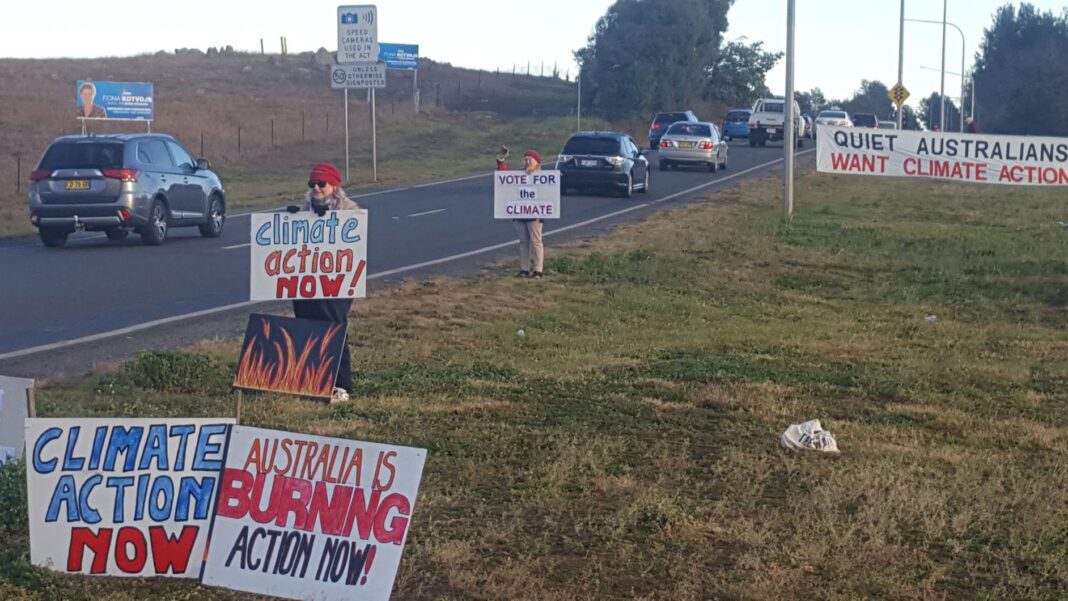A small army of environmental advocates from the Stop Adani Canberra group have targeted the Eden-Monaro by-election with their message for change.
In recent weeks, the group have picketed along Canberra Avenue, the Monaro Highway, and Pialligo Avenue near the Canberra Airport at peak hour to reach voters who work in the ACT.
Protester Cathy Rossiter said the group received a huge amount of support from passing motorists.
“People beep and wave and give us a thumbs up,” she said.
“There is only a couple of rude gestures.”
With no preferred candidate or political party, Cathy said she just wants people to think about the environment before they cast their vote.
Cathy’s husband David stands right next to her each morning holding his own sign.
David said the coronavirus had demonstrated the power of science and now it was time for the government to apply science to their climate policies.
“This summer we burnt 20 % of the bush instead of 2%,” he said, “We need serious change.”
Fellow protester and Stop Adani Canberra member, Diana Davison-Mowle, said she was picketing because the environment was the fundamental issue of our age.
“Climate is so important and it’s changing so rapidly,” she said.
“We need to change our policies on fossil fuel and the people of Eden-Monaro need to know what the current policies are. They must be informed.”
Diana recalled the brutality of the last bushfire season and said her niece was evacuated from her South Coast home five times.
“On the first day of the year, the air was so thick with smoke we thought we’ve got to do something, so we made signs and stood outside of The Lodge,” she said.
“We were there every week until the coronavirus hit.
“It was not a once-off incident, it’s not going away.
“We feel we have to do this for all of our children.”
A report released this week from progressive think tank, The Lowy Institute, suggests there has been a shift in Australian attitudes towards environmental action since the bushfires with nine out of 10 participants in the study reporting an acceptance of the need for action on climate change.
But the report also found a gap between those worried about environmental security threats and those concerned about climate change specifically.
Climate change only ranked the fifth highest (59%) critical threat to Australia’s vital interests, compared with 77% for drought and water shortages – a difference of nearly 20%.
This suggests that a segment of the Australian community concerned about environmental security issues do not view climate change as a major contributor to drought, water shortages and environmental disasters such as bushfires and floods.
The poll also found only 50% of Australia’s regional and remote population saw global warming as a serious and pressing problem, reflecting a rural/urban divide in political attitudes.



